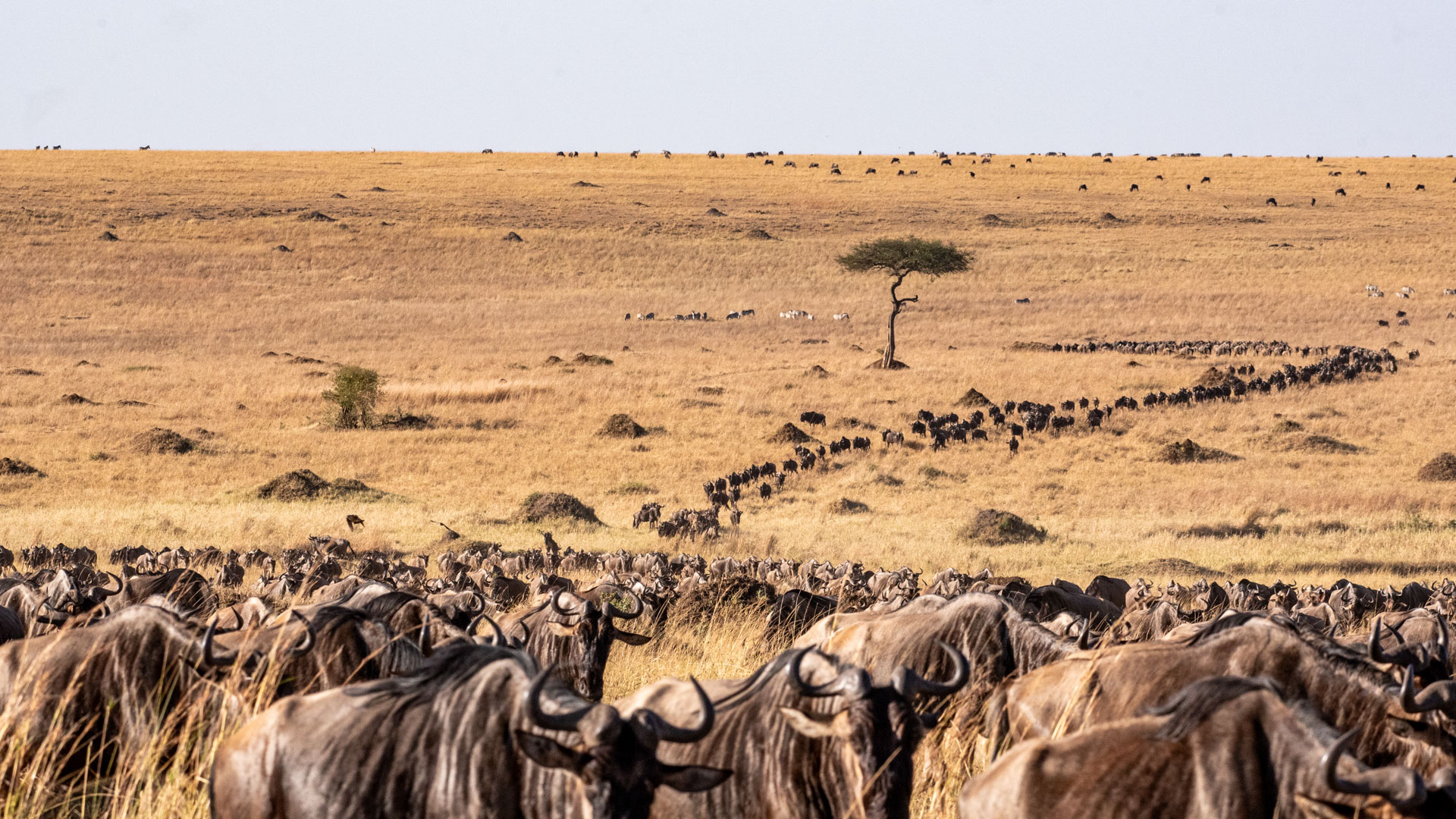
Sunrise rarely disappoints in the Mara as the light colours the sky from the east. Full of life, an infinite number of stories are hiding in the grass every day. We set out to find them — and once again we were not disappointed.
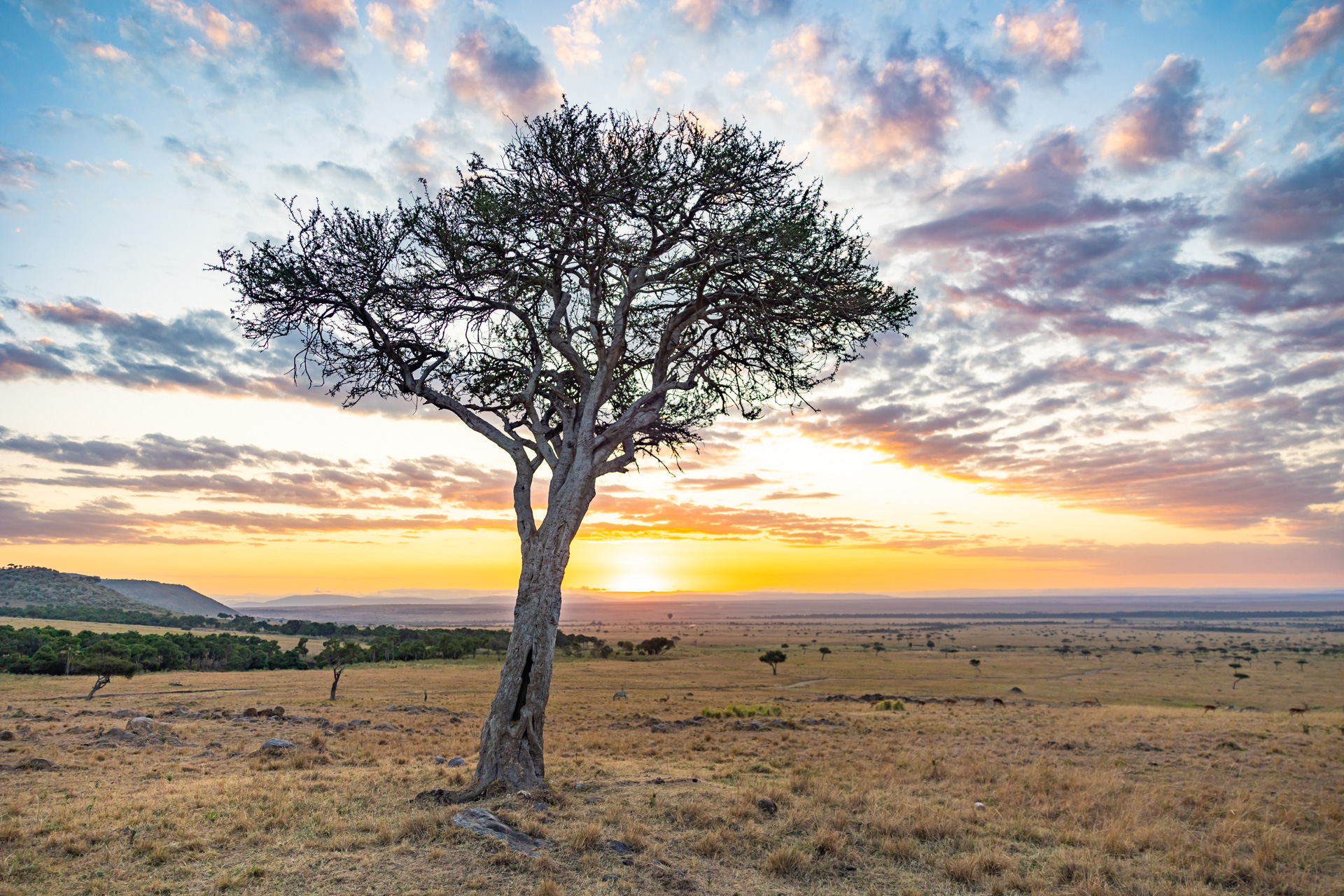
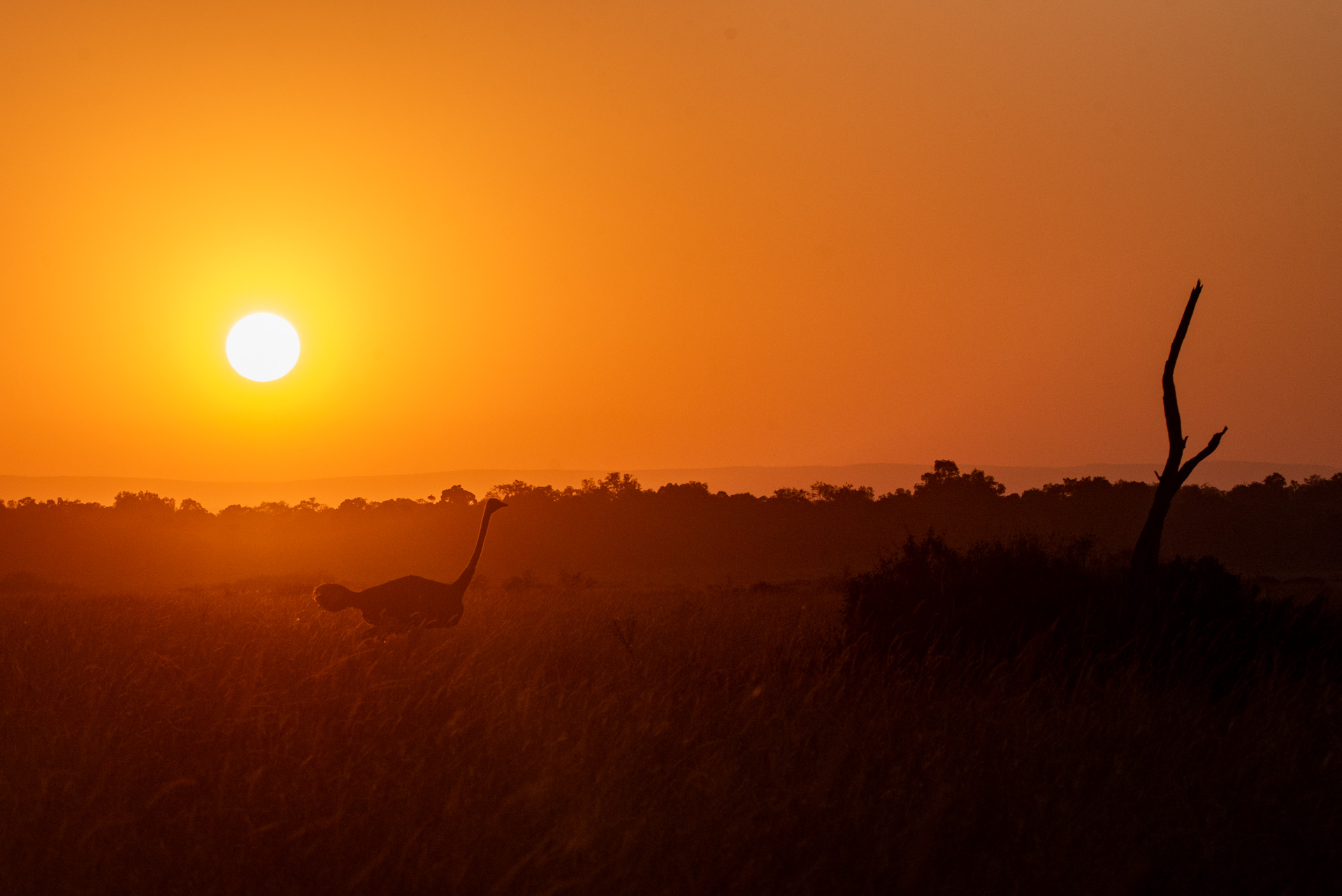
The complex ecological cycles that attract millions of animals to the Mara Triangle every year for the Great Migration are truly an amazing natural spectacle. Being around the massive herds is a humbling experience and the distinct rhythmic sounds you hear as you drive by continue to echo in your mind long after. There was great excitement as the recent rains and fresh grass had finally drawn wildebeest up to the base of the Oloololo Escarpment and Angama guests were able to see the herds within minutes of leaving the lodge.
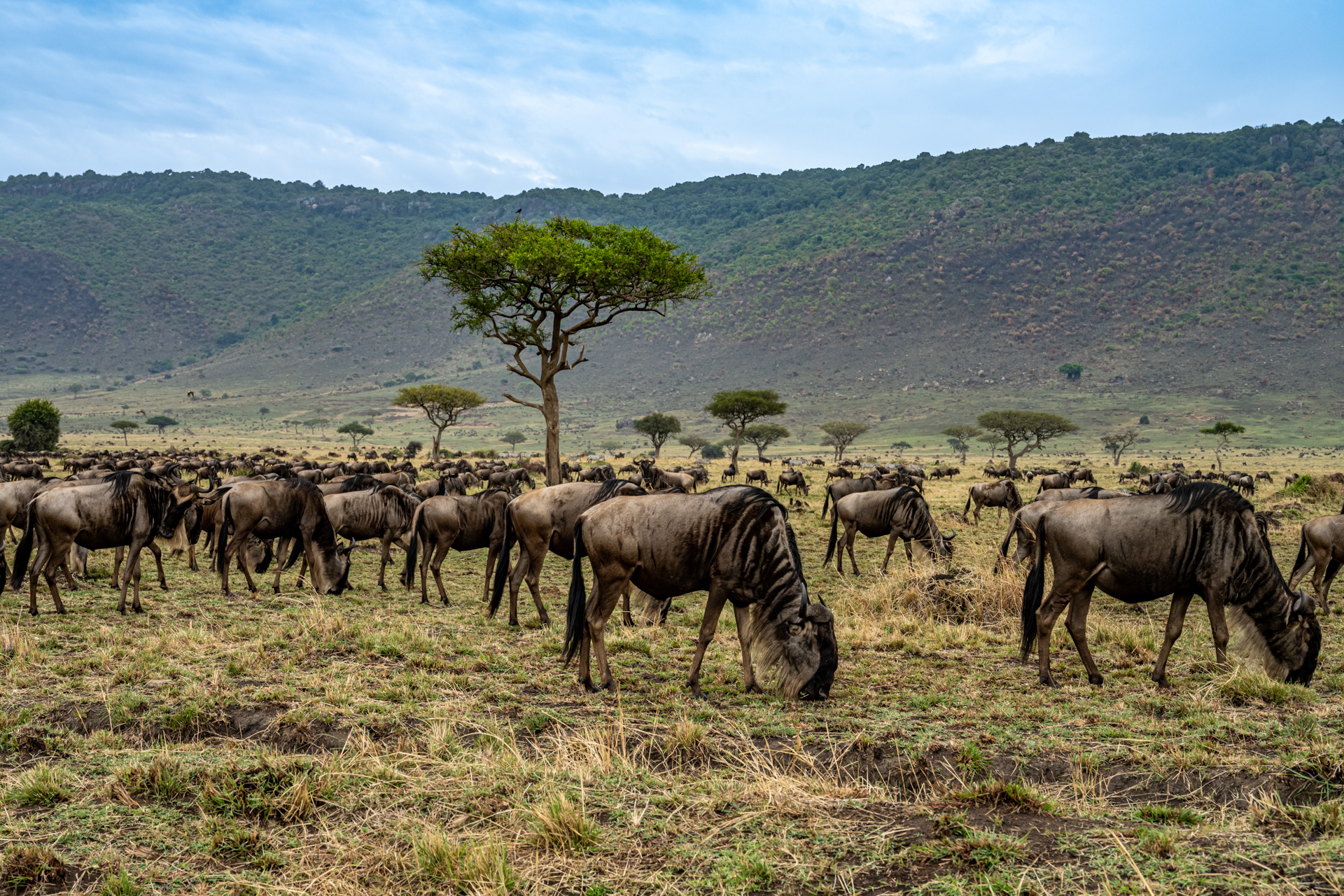
A sight we had all been hoping for happened this week as the Angama lioness was seen with two small young cubs. She had them hidden on a small ridge and we could hear the very familiar sound of the cubs calling out, but, despite waiting for hours, we did not manage to see them as she was very cautious around the vehicles, keeping the young ones well hidden. Luckily, Angama Guide, Johnny, was able to get a video confirming the two are alive and well. We had an earlier report that there were three, but it seems one has passed away.
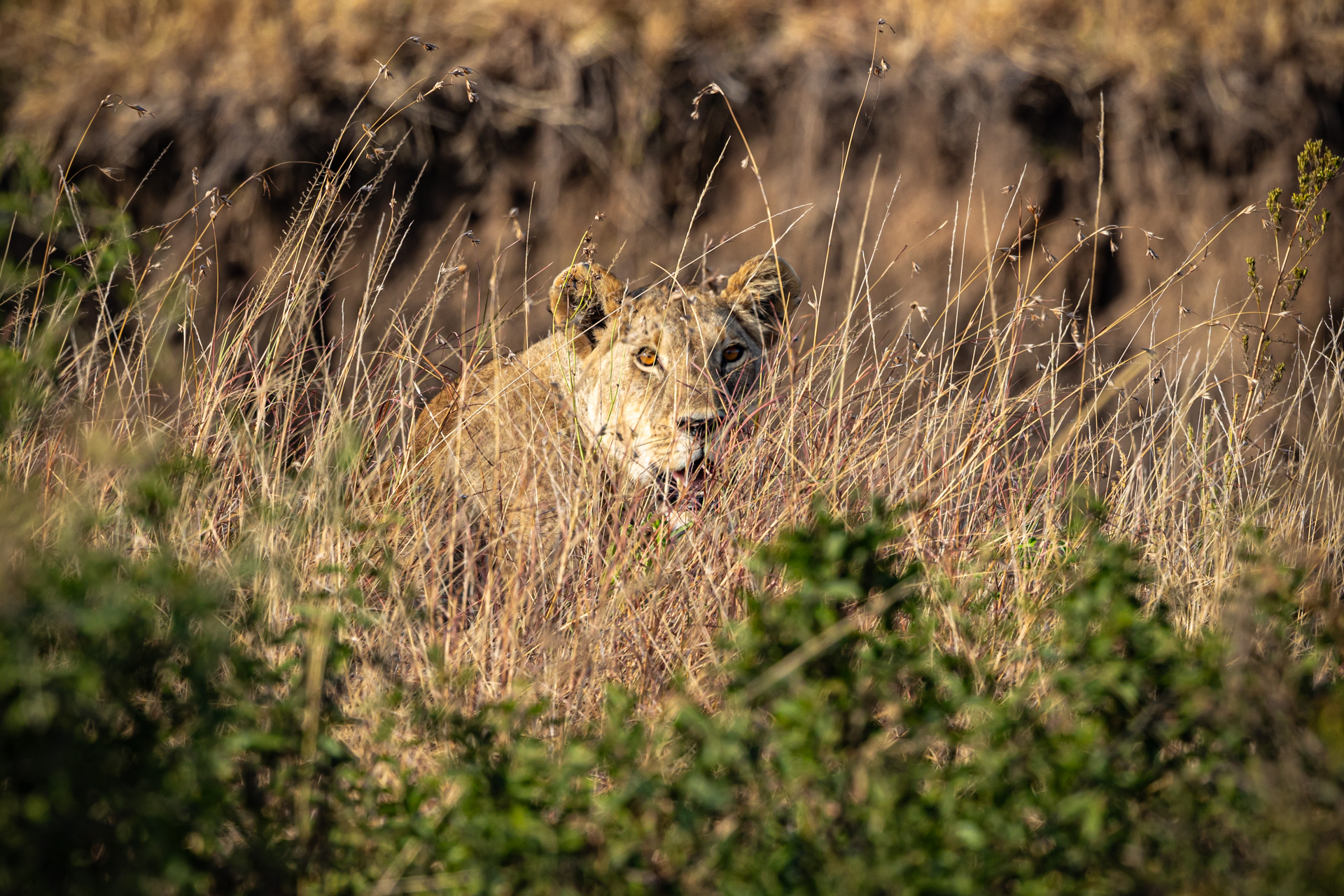
We also came across Nusu and Ginger, two of the Inselberg males, who appeared to be enjoying the plethora of prey around them. Nusu was spotted dragging a wildebeest through the grass but every few moments he had to stop to catch his breath — all this in front of a line of unsuspecting wildebeest in the distance.
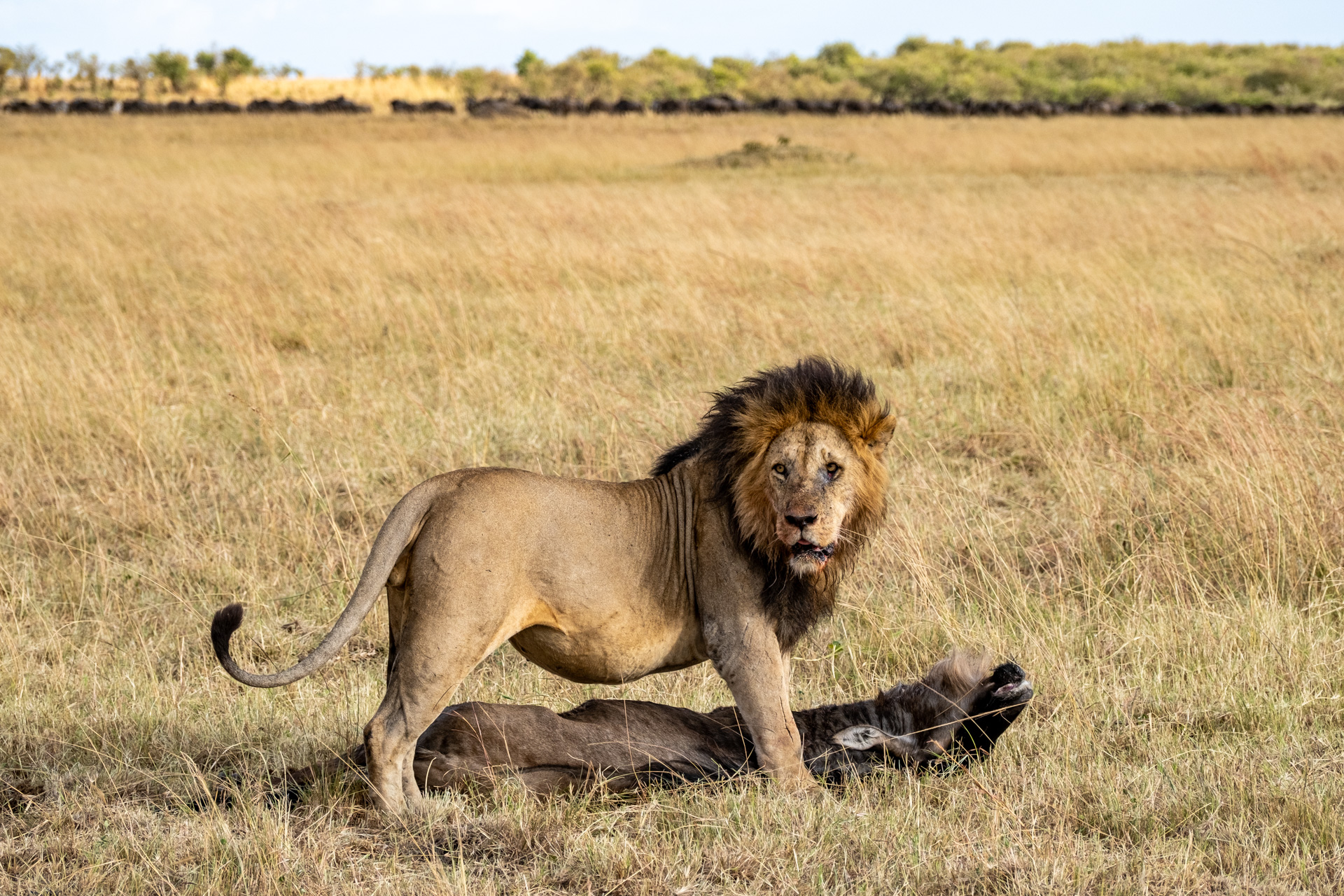
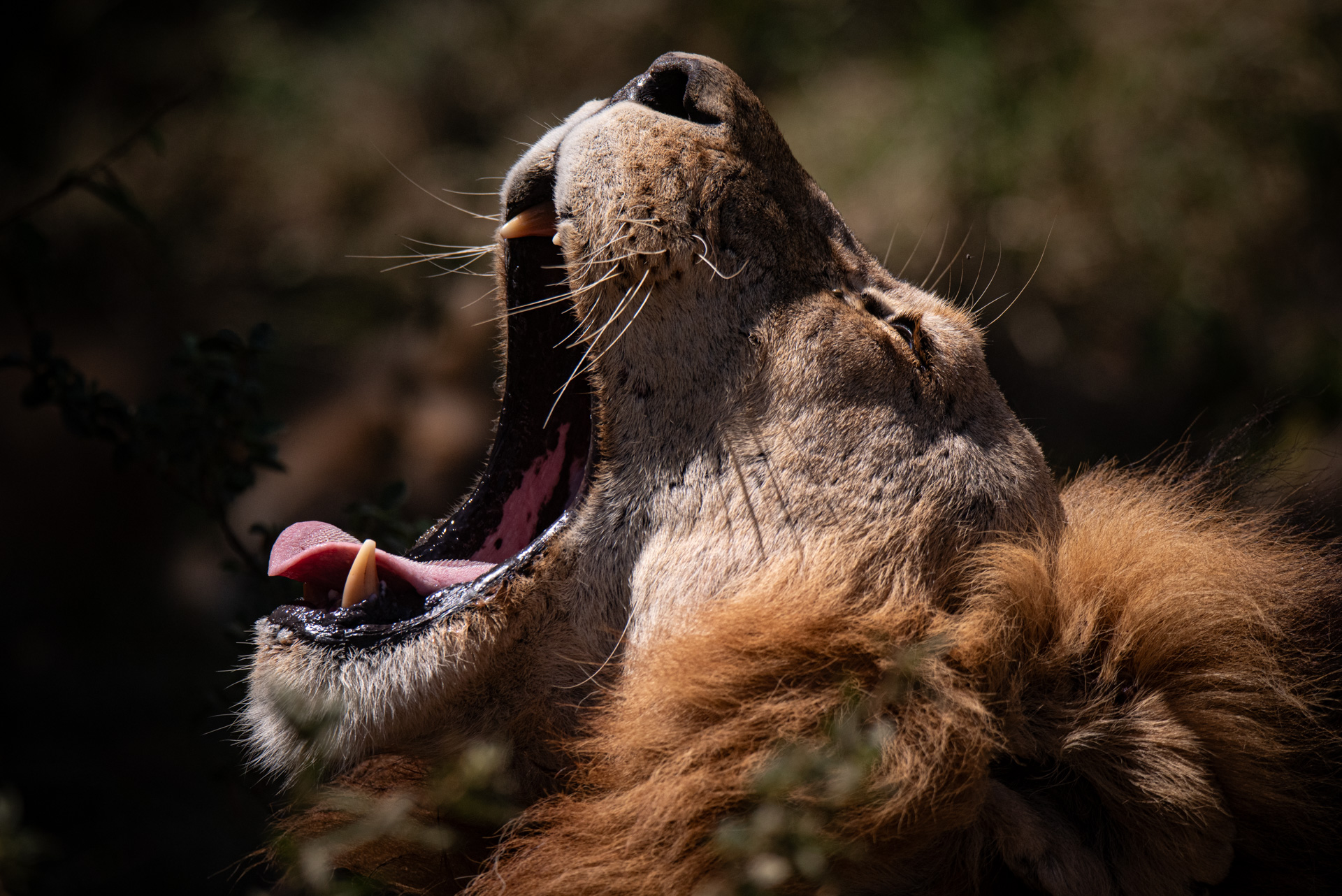
The journey for the wildebeest herds is extremely dangerous as we see carcasses that litter the land during the Migration — a clear sign of predators and scavengers. The cats are constantly looking for energy sources and there is plenty of it scattered around the plains, in fact, almost every kill seen this week was a wildebeest.
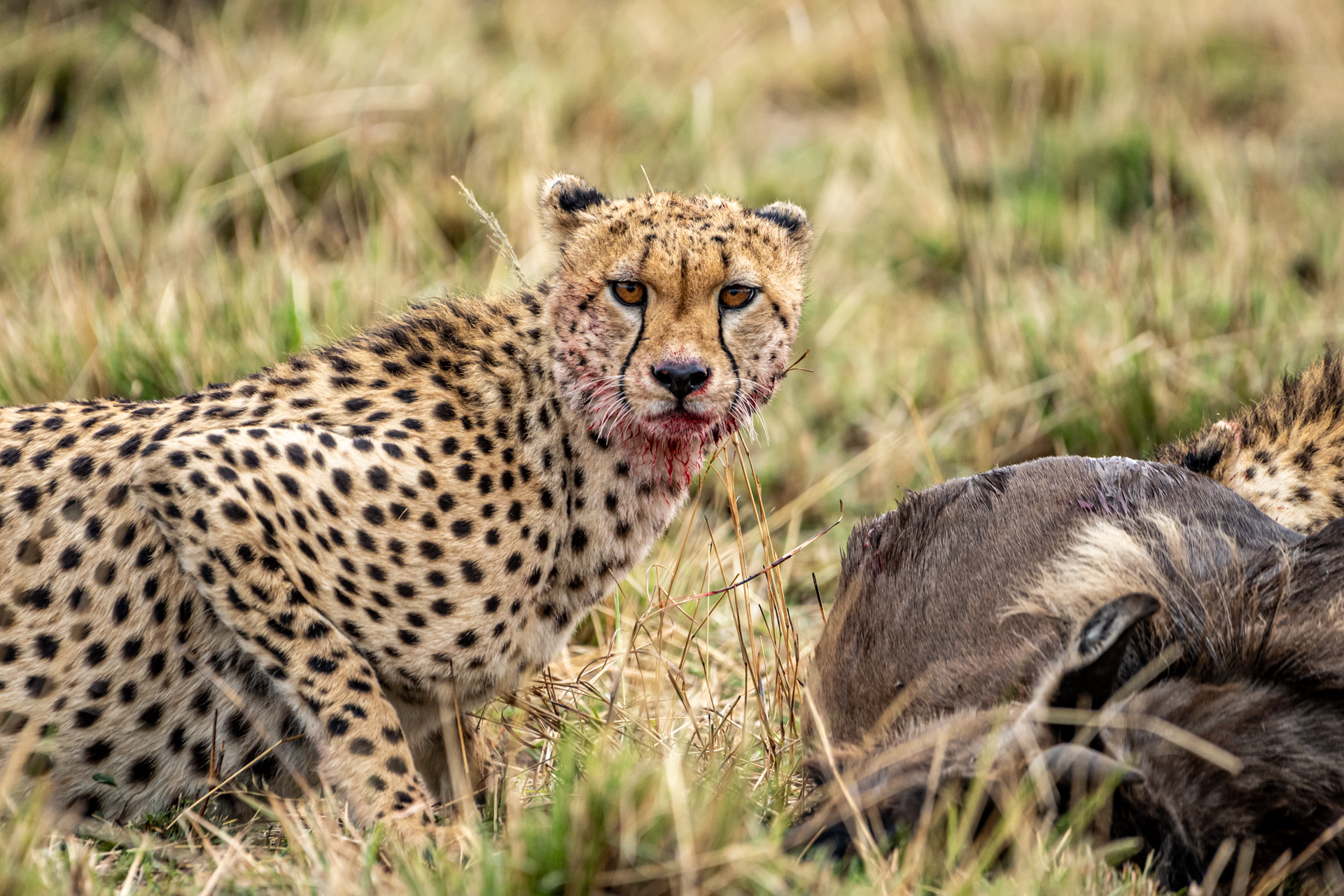
Even the cheetahs, who mostly go for smaller prey, are finding a taste thanks to the large numbers of wildebeest. Brothers Ruka and Rafiki, both skilled hunters now, were found with a fresh kill. We noticed a commotion in the distance but by the time we got close enough, they were already panting and resting after a successful hunt. Once they began to feast they ate fast and would regularly take breaks to digest but they were constantly on high alert as scavengers were not far. The vultures soon began to fly to the nearby trees — alerting hyenas of what was in the area.
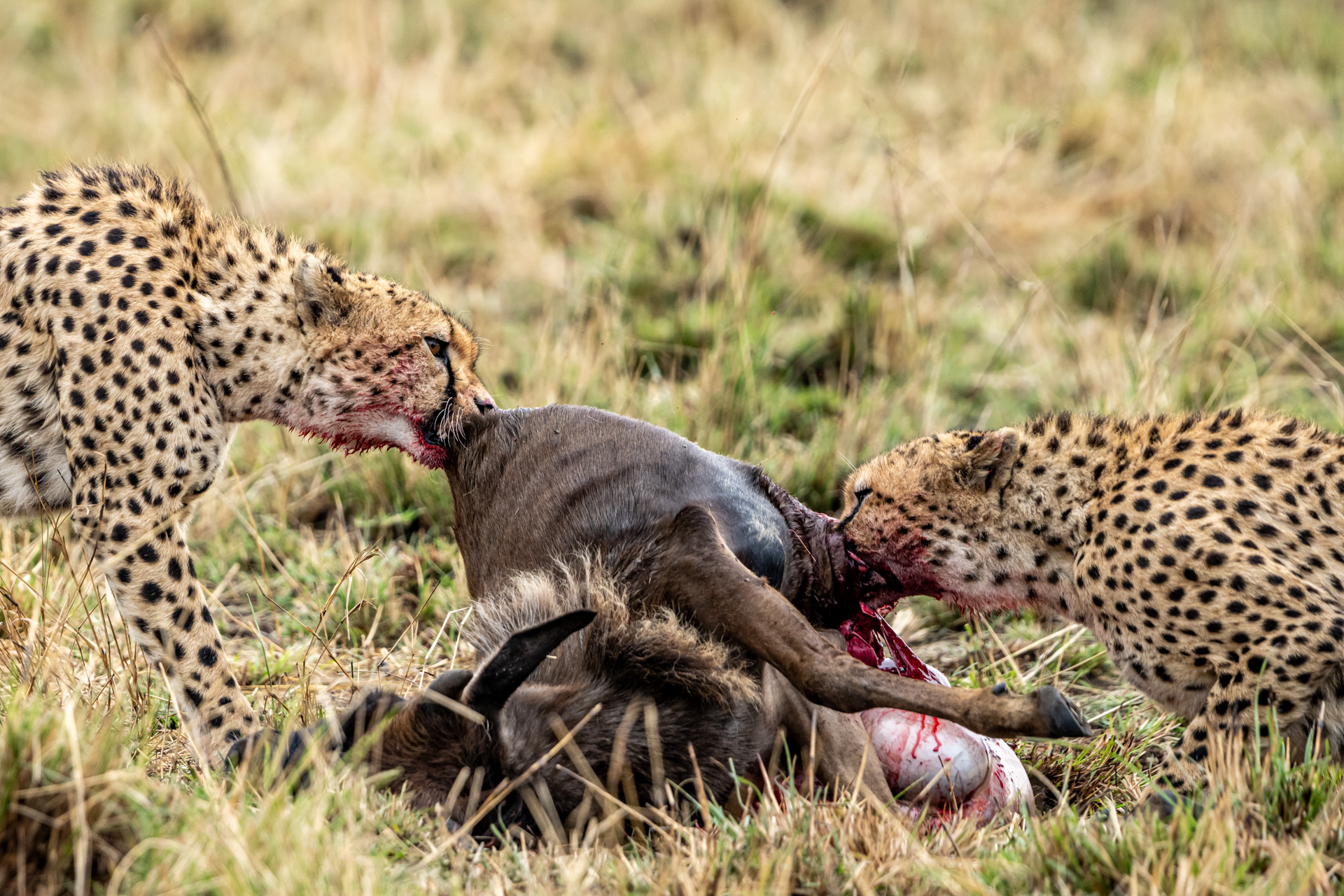
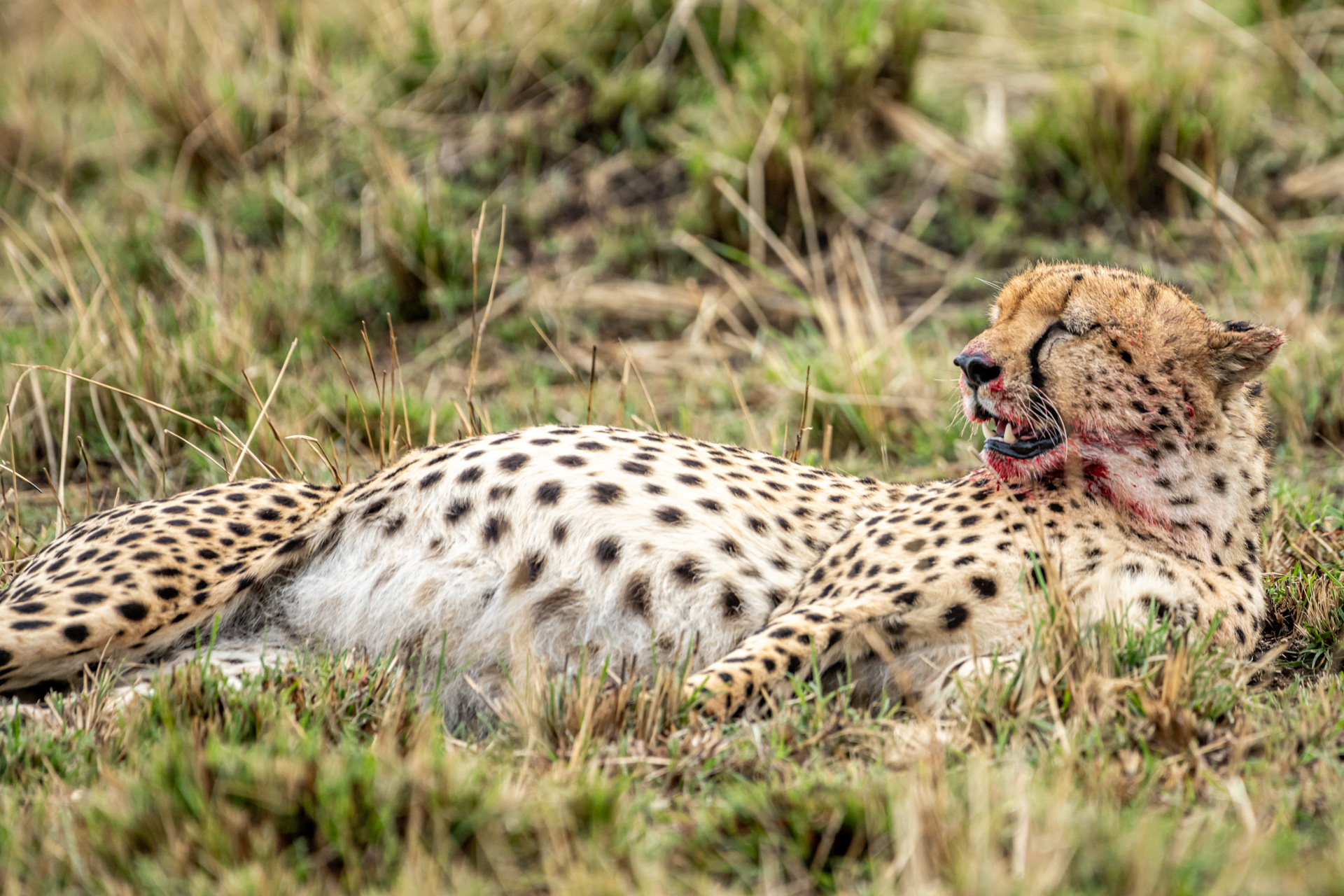
Not far from the Mara Engai junction, we saw one of the Nyati Six males with several members of the Egyptian pride. They had a kill and to no surprise, it was a wildebeest. There were three females, one sub-adult and one cub — the male sat as if guarding the pride while one of the females and both cubs were eating.
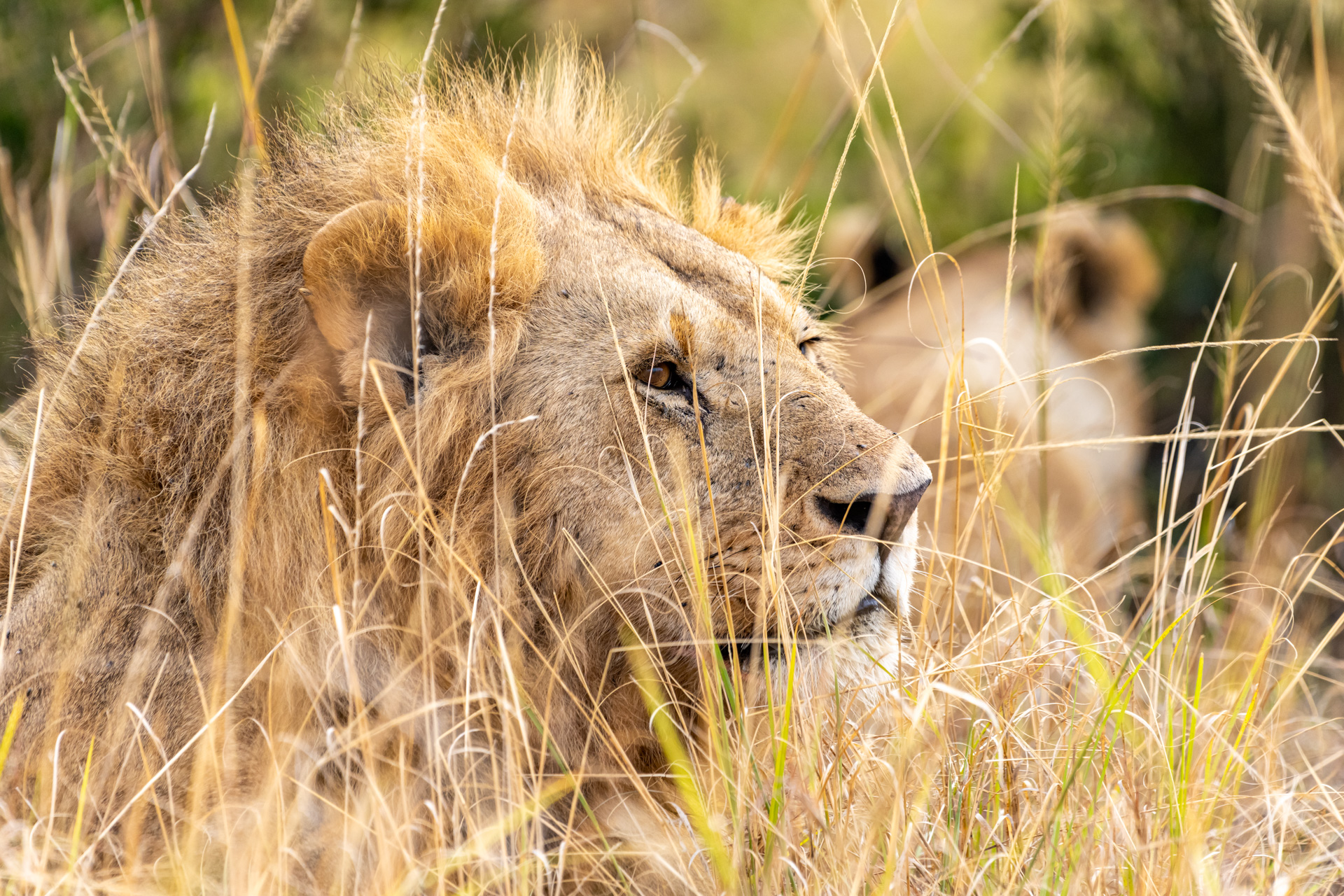
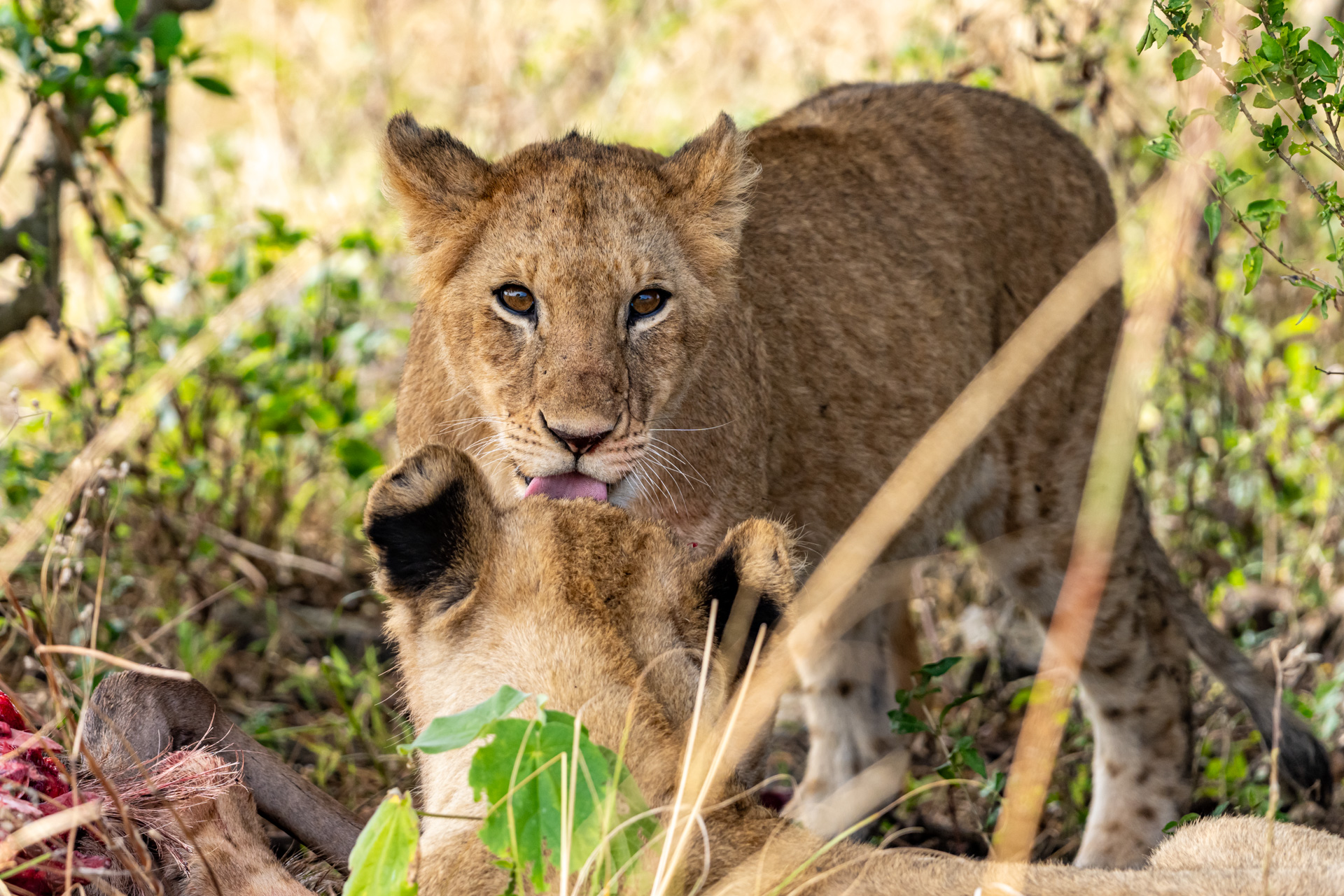
Wilson, another member of Angama's guiding team, came across the Serena pride near the Nyumba Nane area. They joined the week's successful hunts as they, too, were enjoying a wildebeest kill — it really was a week of feasts for the cats.
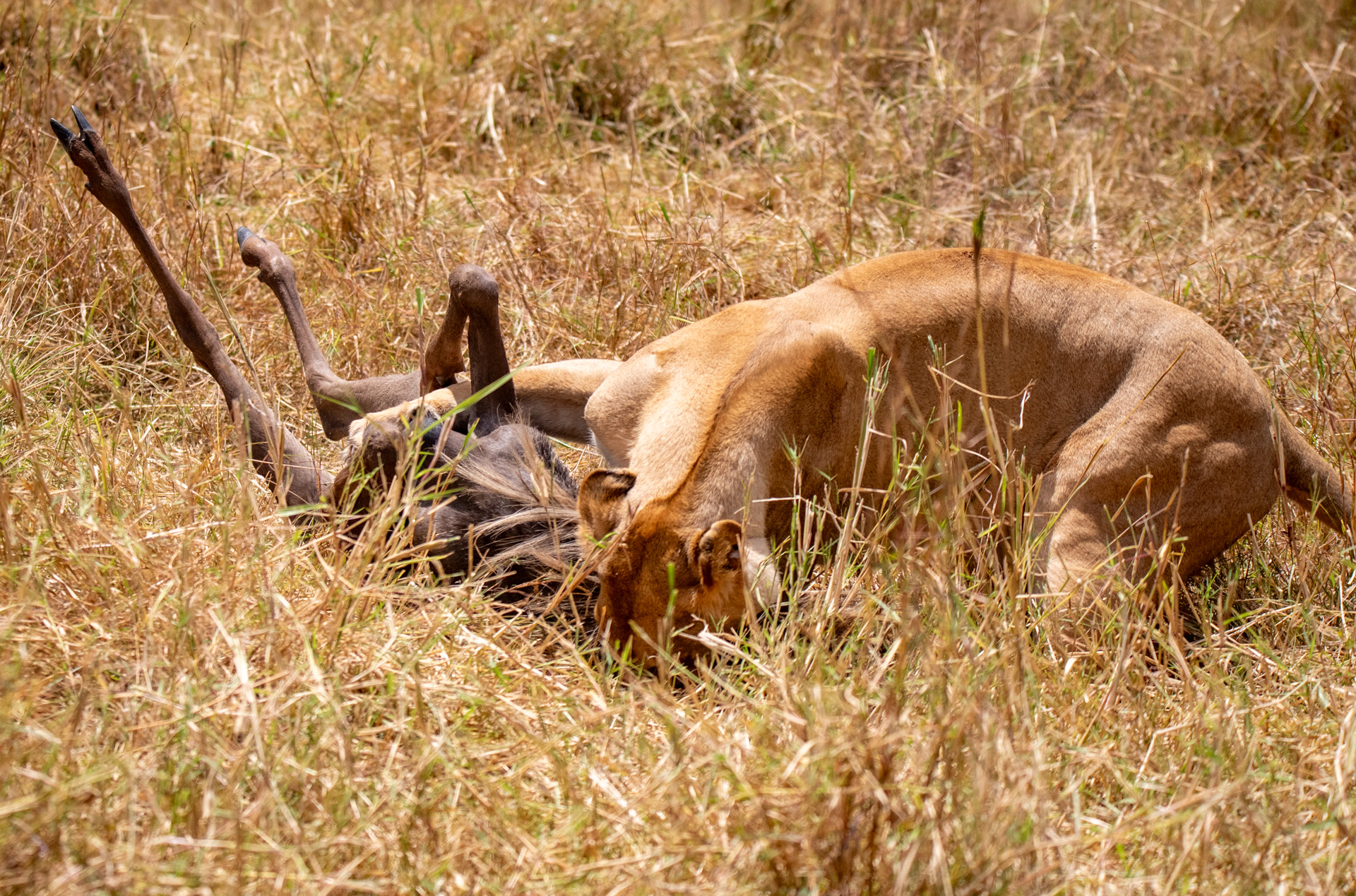
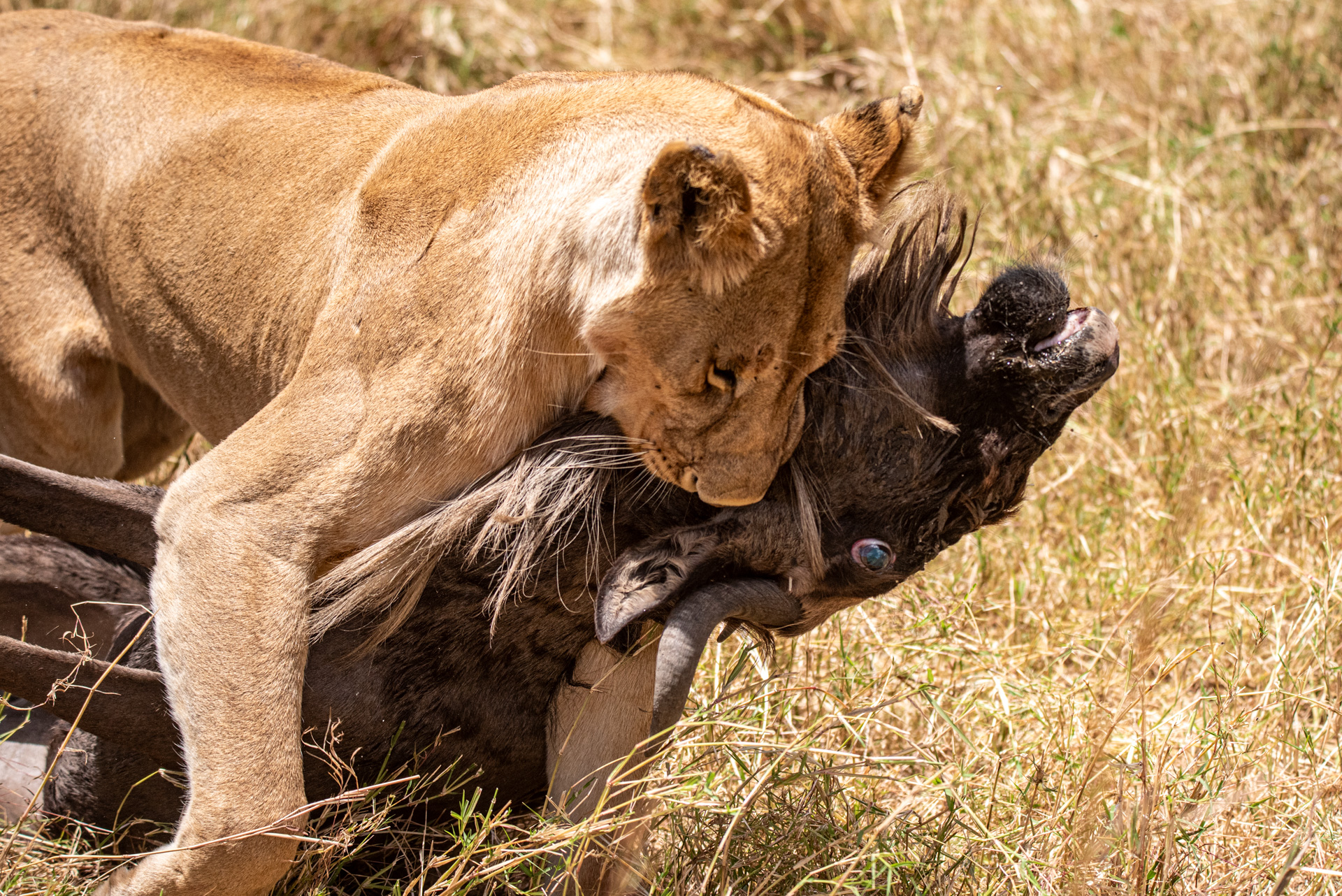
Vultures are considered to be the hyenas of the skies — flying high, following the herds — feeding on animals that have been killed or died of natural causes. As always, we get to see multiple species of birds with incredible and elaborate displays, even spotting a male ostrich doing a dance to attract a mate.
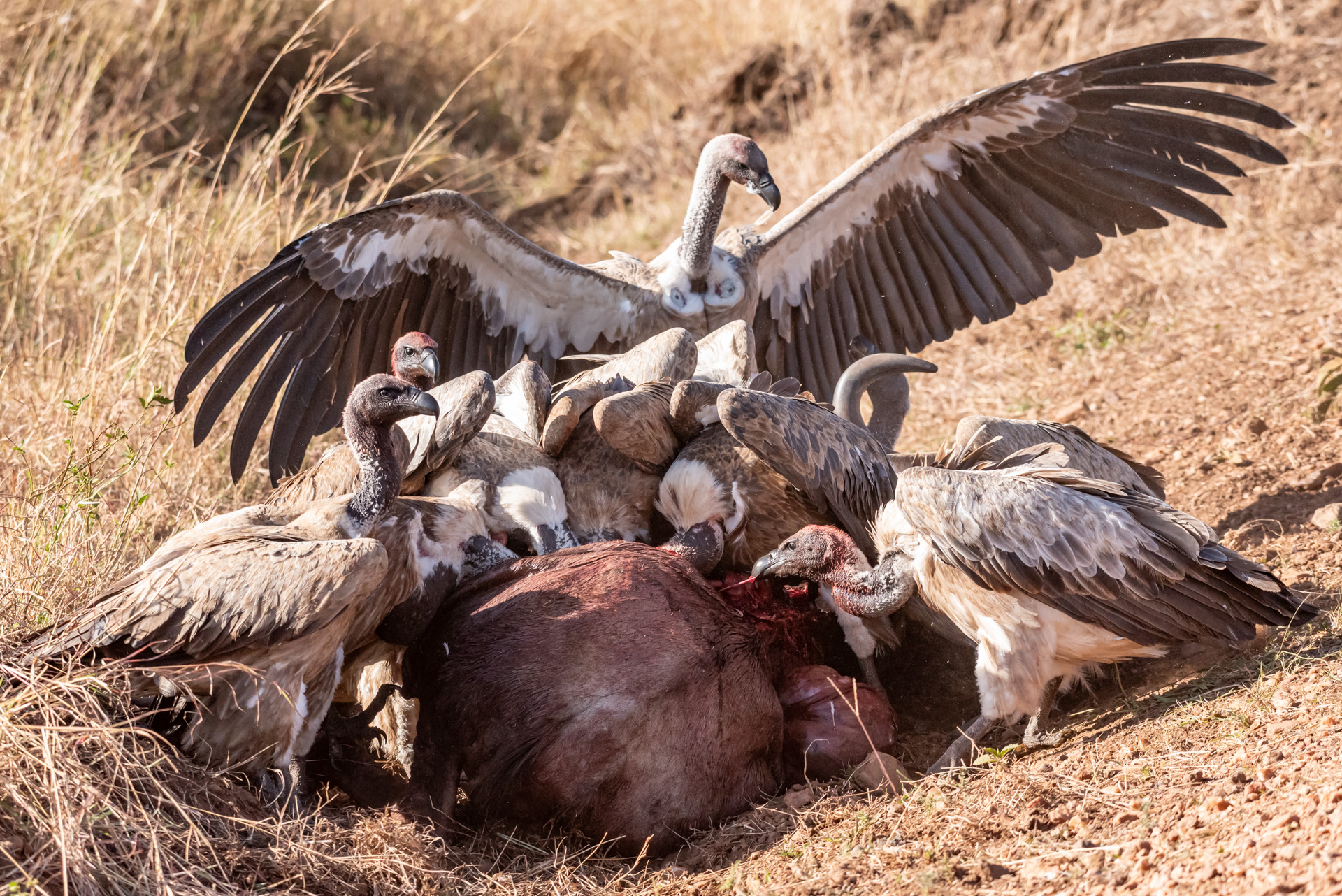
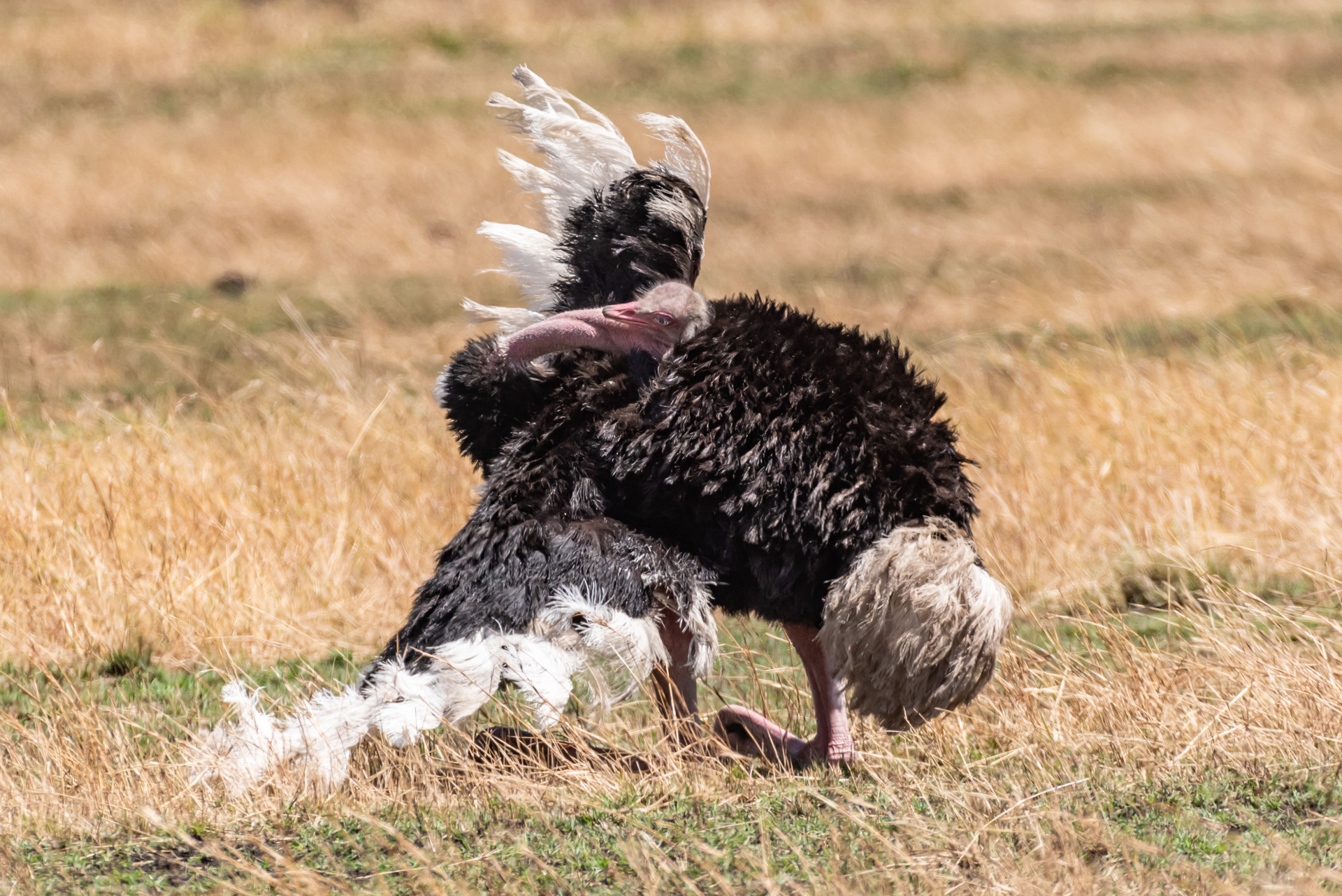
We continue to be blessed with this greatest movement of animals on the planet. Cats are in healthy numbers here in the Mara and they are thriving, relying on these migratory cycles to sustain themselves and their young. Currently, just over 15% of the planet is dedicated to protected places — being able to experience nature in the Triangle at this time of year is a testament to what is possible if we encourage other parts of the world to re-wild more land.
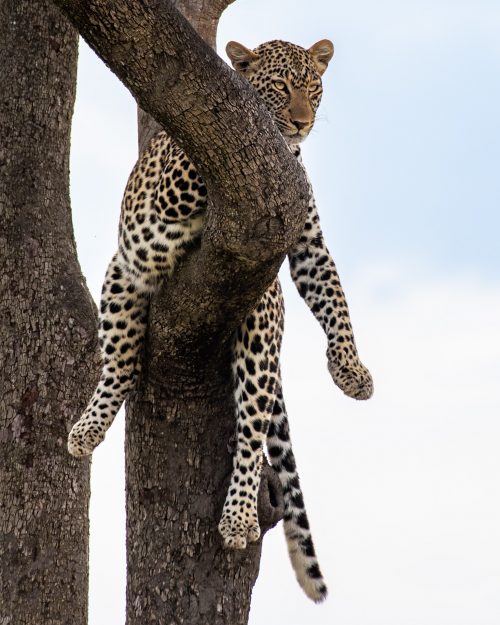
An unknown female was spotted in the Mara this time last year. In fact, four leopards were spotted this week a year ago — it must be a lucky week for big cat sightings.
Filed under: This Week at Angama
Subscribe for Weekly Stories
Comments (1):
6 September 2023
Great blog and amazing shots!
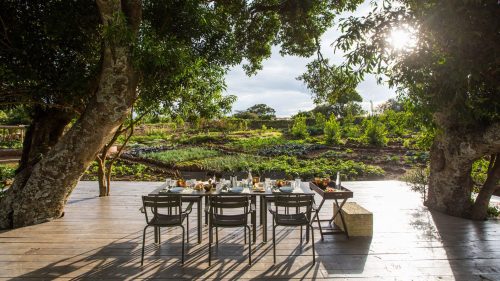
The Angama Shamba